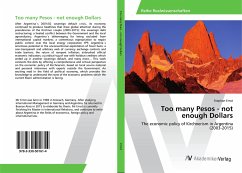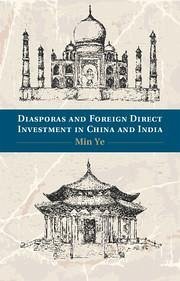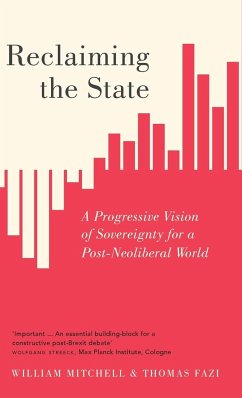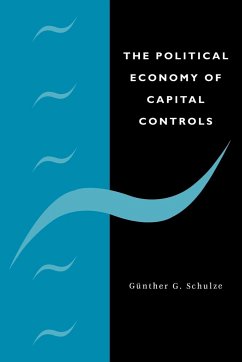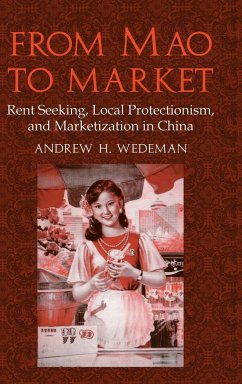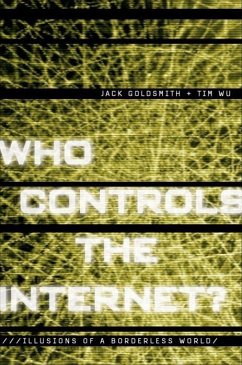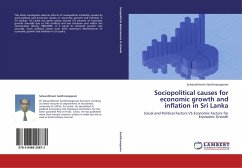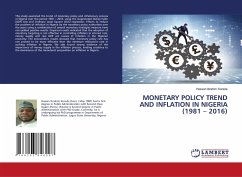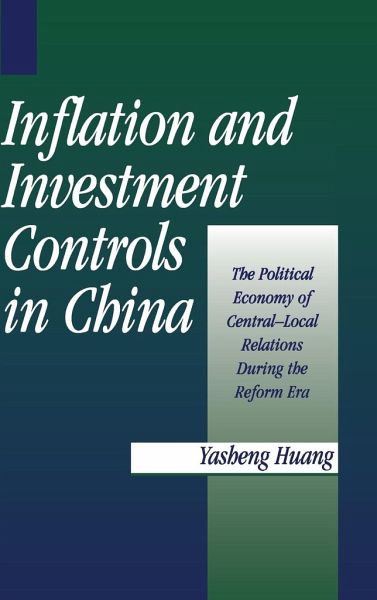
Inflation and Investment Controls in China
Versandkostenfrei!
Versandfertig in 1-2 Wochen
95,99 €
inkl. MwSt.

PAYBACK Punkte
48 °P sammeln!
Why has China been able to avoid the crippling hyperinflation that has bedeviled so many developing and reforming centrally planned economies? This is puzzling because the potential for inflation in the Chinese economy is enormous, the fiscal control by the central government is weak, and China's tax and monetary policies are still passive. This book analyzes an important aspect of this issue - how the central government has been able to tame inflationary investment demand and to impose investment reduction policies that go against the economic interests of Chinese local officials. Yasheng Hua...
Why has China been able to avoid the crippling hyperinflation that has bedeviled so many developing and reforming centrally planned economies? This is puzzling because the potential for inflation in the Chinese economy is enormous, the fiscal control by the central government is weak, and China's tax and monetary policies are still passive. This book analyzes an important aspect of this issue - how the central government has been able to tame inflationary investment demand and to impose investment reduction policies that go against the economic interests of Chinese local officials. Yasheng Huang focuses on the controlling role of political institutions and argues that one of the central functions of the political institutions is to make allocative decisions about bureaucratic personnel. Drawing on institutional economics, he hypothesizes that centralized personnel allocations help reconcile some of policy differences between the central and lcoal governments and provide vital information to the central government about the conduct of local officials. Systematic data analysis is carried out to test the propositions developed on the basis of this hypothesis. The book also contains detailed descriptions of the roles of local governments in economic and investment management and of China's bureaucratic system. Huang argues that China now has a de facto federalist system in which the central government specializes in political responsibilities and the local governments specialize in economic responsibilities. This, he suggests, has a number of important normative implications. Under the condition of political authoritarianism, this combination of economic and fiscal decentralizations withpolitical centralization may be an optimal governance structure. Economically, a degree of political centralization is useful to alleviate coordination problems when economic agents lack financial self-discipline and when indirect macroeconomic policies are ineffective. Premature political decentralization in the presence of soft-budget constraints may have contributed to runaway inflation in other reforming centrally planned economies. Politically, the Chinese style of federalism can also be optimal because fiscal decentralization helps check the enormous political discretion in the hands of the central government, on which the Chinese political system itself places no formal constraints. Given China's recent history, this ought to be an important consideration in designing China's economic system.





